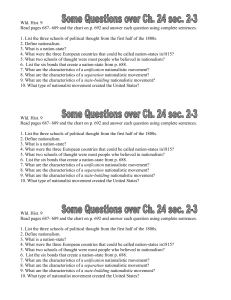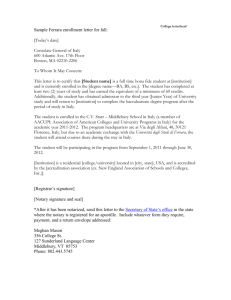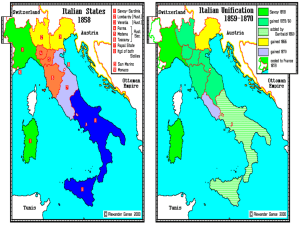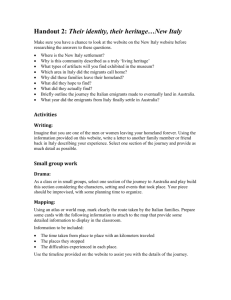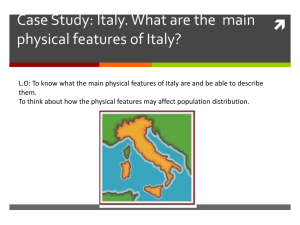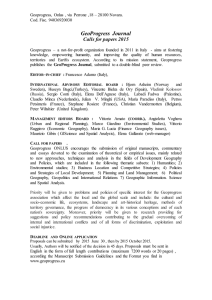Class essay italy 1 2013.doc
advertisement
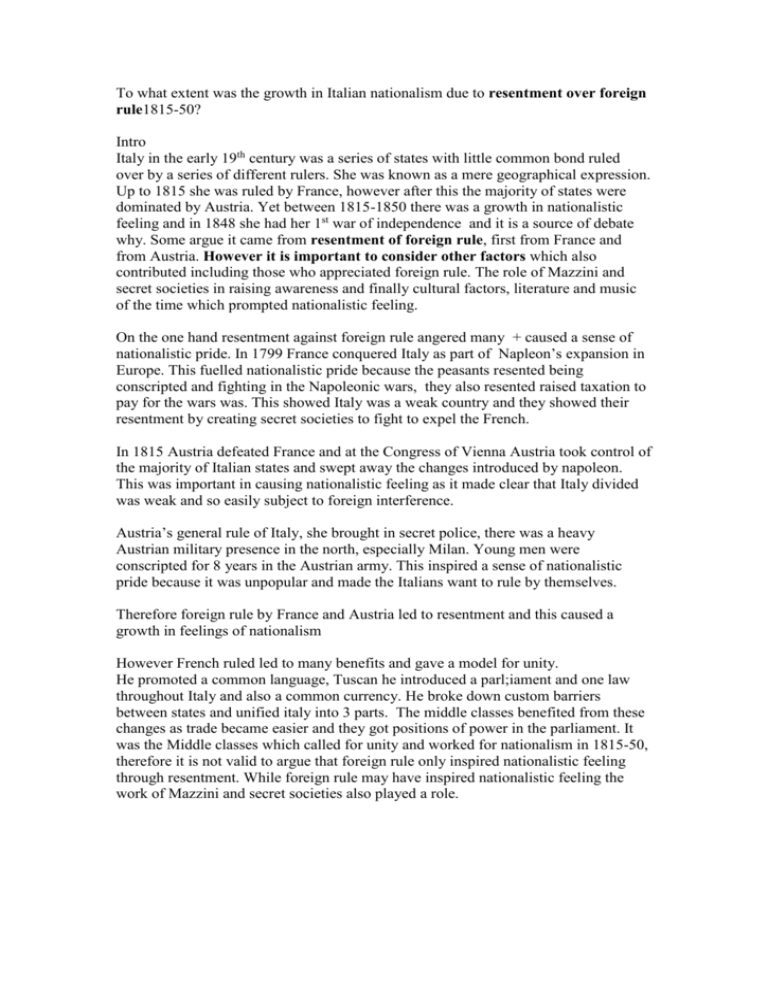
To what extent was the growth in Italian nationalism due to resentment over foreign rule1815-50? Intro Italy in the early 19th century was a series of states with little common bond ruled over by a series of different rulers. She was known as a mere geographical expression. Up to 1815 she was ruled by France, however after this the majority of states were dominated by Austria. Yet between 1815-1850 there was a growth in nationalistic feeling and in 1848 she had her 1st war of independence and it is a source of debate why. Some argue it came from resentment of foreign rule, first from France and from Austria. However it is important to consider other factors which also contributed including those who appreciated foreign rule. The role of Mazzini and secret societies in raising awareness and finally cultural factors, literature and music of the time which prompted nationalistic feeling. On the one hand resentment against foreign rule angered many + caused a sense of nationalistic pride. In 1799 France conquered Italy as part of Napleon’s expansion in Europe. This fuelled nationalistic pride because the peasants resented being conscripted and fighting in the Napoleonic wars, they also resented raised taxation to pay for the wars was. This showed Italy was a weak country and they showed their resentment by creating secret societies to fight to expel the French. In 1815 Austria defeated France and at the Congress of Vienna Austria took control of the majority of Italian states and swept away the changes introduced by napoleon. This was important in causing nationalistic feeling as it made clear that Italy divided was weak and so easily subject to foreign interference. Austria’s general rule of Italy, she brought in secret police, there was a heavy Austrian military presence in the north, especially Milan. Young men were conscripted for 8 years in the Austrian army. This inspired a sense of nationalistic pride because it was unpopular and made the Italians want to rule by themselves. Therefore foreign rule by France and Austria led to resentment and this caused a growth in feelings of nationalism However French ruled led to many benefits and gave a model for unity. He promoted a common language, Tuscan he introduced a parl;iament and one law throughout Italy and also a common currency. He broke down custom barriers between states and unified italy into 3 parts. The middle classes benefited from these changes as trade became easier and they got positions of power in the parliament. It was the Middle classes which called for unity and worked for nationalism in 1815-50, therefore it is not valid to argue that foreign rule only inspired nationalistic feeling through resentment. While foreign rule may have inspired nationalistic feeling the work of Mazzini and secret societies also played a role. Mazzini known as the most dangerous dangerous man in Europe contributed to nationalistic feeling by acting as source of inspiration and showing change was possible. On the one hand he wrote many leaflets and phamphlet abot Italy being united as a republic, this was important in making people feel nationalistic because he wrote 50,000 which could spread the message amongst many people. Not only this he also created Young Italy in 1831 which was group made up 60,000 people which fought for Italian unity. Clearly having 60,000 members would indicate that M was very important in making people feel nationalistic and willing to work for it. On the other hand, the importance of M has been overageareated, although he was a prolific writer 80% of the population were unable to read which limited his impact. Also he spent most of his time in exile in france or Britain or in prison which limited his impact. Finally M was 2 extreme for many to have wide appeal. Therefore M did have a role, but mainly amongst literate people in the towns, the cultural factors also created nationalistic feeling amonst those who could read. The cultutre of the time was known as the romantic period and aimed to inspire sentiment and nationalist feeling, although like M was limited to the literate. Monzoni’s books about peasants suffering uder the aristocracy were important in inspiring nationalistic feeling because it became a best seller and Italians could identify and compare themselves to the peasants. By writing in Tuscan he promoted unity through a semi official language.Poets Foscola and Leopardi also promoted nationalisti feeling by writing poems which exaggerated Italy’s past to give a sense of pride and heritiage. Grantd howevere their works were limited to those who could read. Finally Opera on the other hand had a wider appeal, VERDI wrote operas with the theme of patriotism and were used to inspire nationalistic feeling by the audience throwing flowers int eh colours of the Austrian flag onto the stage and the actors would stamp on them. In conclusion resentments over foreign rule did help to a fair extent. Because it created asense of grievance and annoyance which led many to want a free and united Ityalty. On the other hand foreign rule from Napoleon acted as a source of inspiration and showed many the benefits of a united italy and had genuine support. Not only this, people felt nationalistic because there were people like Mazzini and young Italy who actively encouraged and promoted the idea of a united Italty. Finally for some educated minority they felt nationalic pride because of the books and poems which they read. Therefore it was a combination of factors which made people feeling nationalistic however it was limited to a very small part of the population, people that were educated and lived in urban areas where these ideas were being spread.
